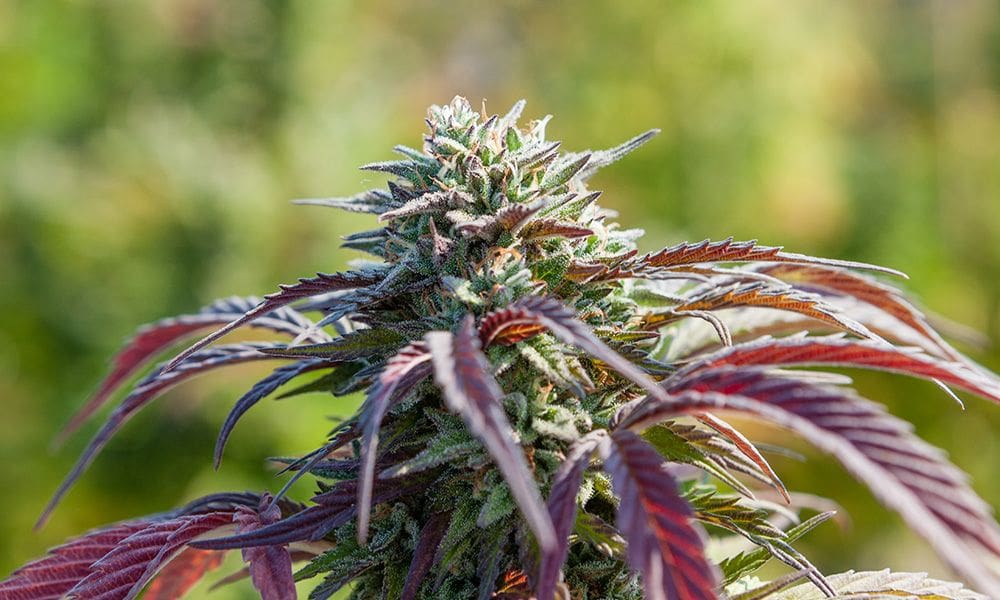We have seen cannabis revenues fill state coffers for a variety of purposes, such as education and school construction in Colorado. But Maryland Delegate Gabriel Acevero has a new idea: He wants to create a sovereign wealth fund that would distribute a cash dividend to everyone in the state on a regular basis.
His bill, HB 1089, would establish the Maryland People’s Fund using cannabis revenue. Acevero’s proposal would redirect some of the taxes and fees from medical cannabis toward the People’s Fund. Julian Haffner, Acevero’s chief of staff, confirms that should the state legalize recreational weed, Acevero will propose adding the associated tax dollars to the fund as well. HB 1089 has already attracted ten cosponsors, all Democrats, in addition to Acevero himself.
Old Frameworks, Adapted
The sovereign wealth fund idea — in which the state owns and invests a fund, which then produces regular dividends — is not new to the U.S. Alaska has had one since 1981. Funded by leasing the state’s ample oil reserves, the state’s fund is invested and grown, and releases an annual dividend between $1,000 to $3,000 to every state resident.
Acevero has something similar in mind for Maryland.
While a dividend from medical cannabis revenue alone might not generate enough to provide a dollar per Marylander per year, this revenue stream is simply, as Haffner explained, “meant to serve as a seed to start the fund.”
Recreational cannabis revenue would grow it some more, and after that Haffner wouldn’t speculate, but noted that “it’s fair to assume we’re looking at everything.” Acevero mentioned a carbon tax and a tax on millionaires to Vox’s Dylan Matthews, as reported in the publication’s Future Perfect newsletter.
The creation of the fund would be a stepping stone to much bigger ideas. “The ultimate goal,” said Haffner, “is to create a universal basic income in Maryland.”
New Hope For an Established Ideal
While the seed planted by medical cannabis revenue would have to grow into a giant sequoia before it could distribute substantial regular cash dividends to the 5.8 million people of Maryland, the notion shows the potential of cannabis legalization to shepherd in new policy ideas.
With new legalities and new revenue comes the opportunity to create new policy. In Massachusetts and California, for instance, legalization has been used as a vehicle to uplift communities disproportionately impacted by the War on Drugs through priority licensing and other equity-focused programs.
For Acevero, the harm done by the War on Drugs is a primary motivation behind this proposal. Though a universal basic income provides the same dividend to every person it goes to, the outsized impact it would have for low-income people, disproportionately people of color. As such, basic income has been a cause championed by civil rights movements, from Martin Luther King Jr. to the Movement for Black Lives and Rev. William Barber’s Poor People’s Campaign.
Similarly, cannabis legalization has long had criminal justice reform, and the disproportionate impact criminalization has on communities of color, as a central rallying cry. Legalization advocates have often sought to find tangible ways in which liberalizing cannabis laws can be good for everyone. Colorado’s school construction fund is again one obvious example, but a basic income would be an even more direct benefit.
Marijuana legalization and basic income also share coalitions. Both are causes favored by young people and people of color (Acevero, 28 and Trinidadian-American, is both) and hold appeal for both liberals and libertarians. Politically, the causes are neighbors, but on a policy level, no state has attempted to tie the two together. That will change if Acevero is able to see this idea into law.
TELL US, do you support a universal basic income?




















